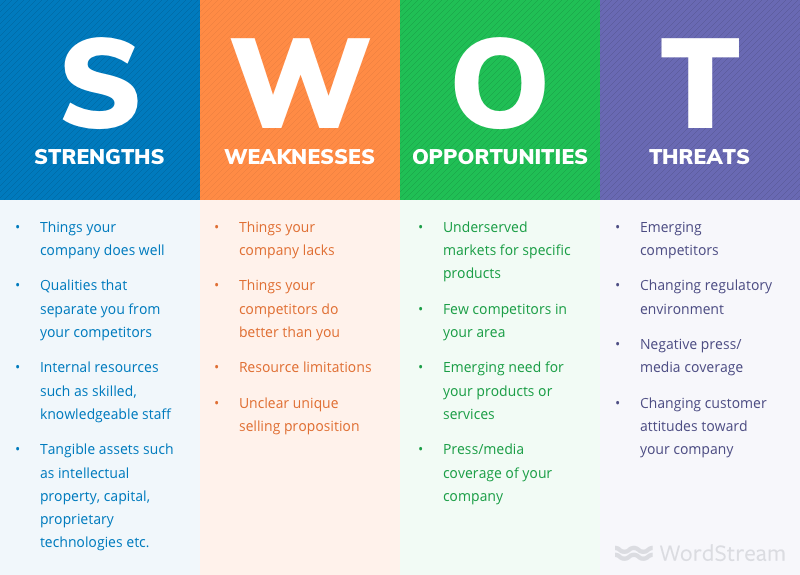Are you ‘working on’ or ‘working in’ your business?
Just like in your personal life, business owners need to set well-defined goals to allow their business to grow, provide direction for the company, and improve morale amongst employees. It’s crucial to step outside your business occasionally to review your processes.
To maximise the effectiveness of the exercise, you need to consider how your business is faring by analysing it’s strengths and areas it could improve. Some tools and strategies to help you assess your business include:
-
Market research
Keep your finger on the pulse of your market and the industry your business trades in. This will help you to look at trends, your customer’s changing needs, and updates to technology that could benefit your offering.
-
A SWOT analysis
This technique has been used for decades by business owners looking to get a clearer understanding of their company. It identifies your business’s Strengths, Weaknesses, Opportunities, and Threats.

-
Benchmarking
Keep your friends close and your enemies even closer! Researching similar companies in your industry can help you to learn what strategies work best to become successful. It could also help you to avoid mistakes too!
-
Setting Goals
It can be tempting to brainstorm grand ideas in your business. They can help your business to grow, but it is important that your goals are also somewhat realistic. SMART goals are:
Specific – Being crystal clear about what you want to achieve eg ‘I want to double my revenue to $2m by December 2020’.
Measurable – Use metrics developed above so you can track towards your goals and you know when you have achieved them.
Achievable – Ensure you have the resources to meet your goal. This could include staff, training, funding or equipment.
Relevant – A goal needs to be appropriate to your business, for example a relevant goal could be increasing profit or employing more staff
Timely – You must set a realistic deadline for the goal, otherwise you run the risk of waiting years for a result
-
Achieving Your Goals
Breaking down your goals into smaller pieces will make them easier to achieve. There are a number of things to consider when planning your business strategy, including:
Time Frame – How long do you expect to spend working on each task?
Actions – Make sure you describe in detail which actions you will each take.
Responsibilities – Be clear about who is responsible for achieving each step.
Resources – Be detailed about what supplies, how many staff, and what budget you will need.
The Desired Outcome – Describe what you expect to be the outcome of your actions and at what point you will know when the goal has been achieved.
-
How Will You Know When You’ve Achieved Your Goals?
If you integrate your goals into your business plan, they will be easier to track. Having a system in place will keep your goals measurable and top of mind. The accountability process can be as simple as ticking off a to-do list or a complex measurement process, but remember to reward yourself and your employees when you reach your goal.

Behind every great business is a great strategy. Come speak to one of our advisors at Endorphin Wealth to discuss your financial strategy today. For an obligation free discussion, call us on 03 9190 8964, or email us at advice@endorphinwealth.com.au.










